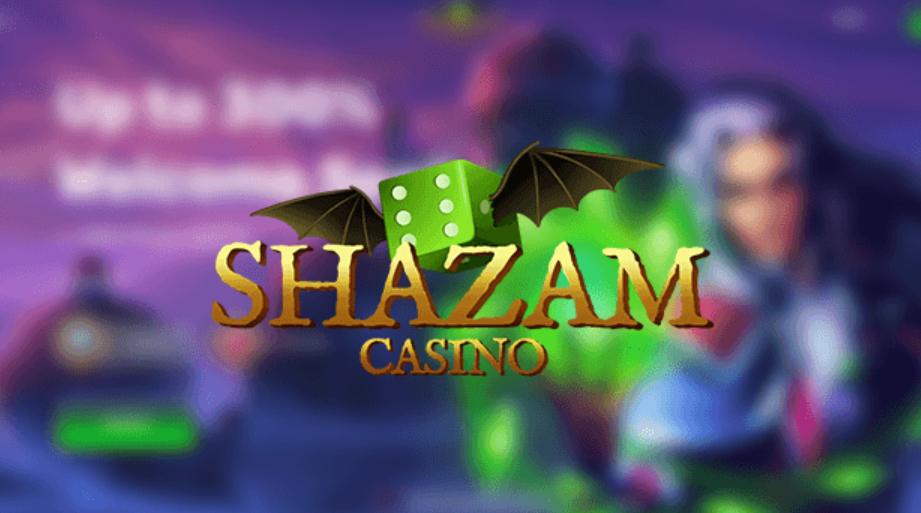
Shazam online casino offers a wide selection of games where the outcome combines mathematics and luck. To navigate this space, it is important to understand the basic metrics, differences between modes, and rules of responsible gaming. If you want to quickly view the sections of the site and evaluate the interface, it makes sense to first click here — this will allow you to see the menu structure, current selections, and helpful tips.
What determines the “chance of success”: key metrics
RTP and variance — what they affect 📊
RTP shows what percentage of bets the game statistically returns in the long run. Dispersion (volatility) reflects the frequency and size of winnings: low — more frequent, but smaller; high — less frequent, but larger.
Key idea: it is worth choosing a game not only “to your taste,” but also based on a combination of these parameters, taking into account your budget and patience.
Why the pace and duration of a session are important ⏱️
Short sessions provide less statistical “smoothing.” Over the long term, the RTP effect is more noticeable. Therefore, competent time planning increases the predictability of the experience.
Information block — basic concepts
- 📈 RTP — average mathematical return over time.
- ⚖️ Dispersion — the nature of the distribution of winnings.
- ⏱️ Tempo — frequency of decisions/spins per unit of time.
Comparison of game formats: which mode is easier for you to win “your way”
Fast spins vs tactical rounds 🎰
Fast spins create many micro-decisions in a short period of time — convenient for practicing control and bankroll management. Tactical rounds are more often tied to bonus mechanics and require patience, but they give noticeable peaks in winnings with discipline.
Mobile scenario vs. desktop sessions 📱💻
On mobile, it is easier to stick to short intervals (15–20 minutes) and not burn out. On a desktop, it is more convenient to take notes, analyze results, and compare mechanics — useful for improving the quality of decisions.
How game types, pace, and risk profile correlate
| Game type | Pace of decisions | Dispersion (typical) | Suitable for | Feature |
| Fast slots | High | Low–medium | Beginners/warm-up | Frequent small wins |
| Slots with bonus scenes | Medium | Medium–high | Patient players | Peaks in bonuses, control is needed |
| RNG table games | Medium | Low–medium | Tactics enthusiasts | Simple rules, steady pace |
| Live modes | Low–medium | Medium | Experienced and disciplined | More excitement, time management is important |
Note: Specific numbers and frequencies depend on the game you choose. The table is a guide for choosing “your” pace.
How to structure your session for a higher chance of success
Step 1. Preparation and settings 🛠️
Enable 2FA, check notifications, and clear unnecessary prompts.
Step 2. Bankroll and limits 💵
Set weekly budget and session limits; start with 1-2% per cycle.
Step 3. Selecting a “portfolio” of games 🎯
Choose fast slot, tactical bonus slot, calm mode for cooling down.
Step 4. Session protocol 📋
Warm-up 10–15 min, then main game. Finish strictly by timer.
Step 5. Brief analysis ✍️
Note what worked, attention gaps, and mechanics’ effectiveness.
Tips on playing styles: choose a roadmap that suits you
Conservative style (flat curve) 🧭
- 🎯 Bets: fixed 1–1.5% of the session limit.
- 🎮 Games: fast/medium-paced, clear prompts.
- 📊 Goal: stability, fewer impulses, more data.
Balanced style (moderate peaks) ⚖️
- 🎯 Bets: fixed, sometimes soft progression in “lucky” windows.
- 🎰 Games: slots with bonuses, alternating with fast ones.
- 🏆 Goal: maintain control, but catch the surges.
Aggressive style (hunting for multipliers) 🔥
- 🎯 Bets: careful progression, pre-set “stop conditions.”
- 🎰 Games: bonus and live modes with well-thought-out pauses.
- 📊 Goal: profit peaks while being prepared for drawdowns.
Quotes/statements: experience and common sense
“Winning is not just luck, but a structure of decisions. Time management and limits turn chance into a predictable experience.”
“Gaming discipline is a habit. First, you set the rules for the session, and then the rules for the session carefully guide you.”
Pros and cons: an honest look at the Shazam format
Advantages ✅
- ✅ Intuitive navigation, easy to build your game “portfolio.”
- ✅ Convenient time and budget control tools.
- ✅ Hints and transaction statuses reduce nervousness.
- ✅ Good mobile ergonomics for short visits.
Possible limitations ❌
- ❌ Emotions intensify during peak modes — breaks are needed.
- ❌ Excessive notifications are distracting — it is worth filtering them out.
- ❌ Long sessions increase fatigue — set a timer.
Bankroll management practices
| Approach | How to apply | Pros | Risks/cons |
| Fixed rate | 1–2% per cycle of 50–60 decisions | Stability, clear statistics | Slow growth when lucky |
| Soft progression | Moderate increase in “windows” | Opportunity to “catch up” | Important to stop in time |
| Hard progression | Strong increase when lucky | Large peaks | Dangerous for beginners |
| Pauses and “cooling off” | Break every 15–20 minutes | Decrease in impulses | Requires discipline |
How to compare games within Shazam: criteria for a “transparent choice”
What to look for in the game card 🔎
- 🎰 Description of mechanics: are there bonus scenes, multipliers, free spins.
- ⏱️ Pace: how quickly decisions are made and situations change.
- 👀 Visual readability: is the interface cluttered?
- 📱 Device compatibility: stability on your smartphone/PC.
How to check your comfort level 👌
Play for 10–15 minutes at basic stakes, note how quickly decisions are made and how many times per session you felt in control. If it’s not clear, it’s better to replace the game with an alternative with a more understandable pace.
Recommendations for “windows of power”: when to strengthen
Signs of a favorable window 💡
- Returns have become more frequent, and the series feels stable.
- Bonus mechanics are triggered more often than usual.
- The interface is easy to read, with fewer errors.
How to act in the window 🧠
- Don’t jump sharply on the bet — a soft progression is better.
- Keep your focus on the mechanics, not your emotions.
- At the end of the window, take a break and do a quick review.
Practical tips for users in the US
About the device and network 📶
Close background applications, use stable Wi-Fi/5G, and keep an eye on your battery charge — this reduces micro-lag and errors.
About payment habits 💳
Plan your budget in USD, set upper limits for the week and per session. Avoid spontaneous “emotional” top-ups.
Lists of ideas for “smart play”
What helps you win more often “on merit” 🎯
- 📝 Keep a mini-journal of decisions and results.
- ⏱️ A clear timer for each session and gentle breaks.
- 🎯 A portfolio of 2–3 games for different paces.
- 💵 Fixed bets as a base; gentle progression only in windows.
What is best to avoid ❌
- ⚠️ “Catching up” after a losing streak.
- ⚠️ Sudden jumps in bets for no reason.
- ⚠️ Overloaded interfaces (leave only the necessary prompts).
- ⚠️ Extremely long sessions without breaks.
Summary of the advantages and weaknesses of the Shazam format
What is particularly pleasing ✅
- Clear navigation logic and quick access to games.
- Tools for controlling time and budget.
- Flexible mobile/desktop ergonomics.
What requires discipline ❌
- Managing emotions during peak modes.
- Filtering notifications to reduce noise.
- Strict adherence to the timer and pre-set stop conditions.
How to turn “winning opportunities” into a manageable experience
In Shazam, the winner is the one who structures the game: chooses the right pace, takes notes, plans sessions, and respects limits. Winning opportunities are not a “magic button,” but a set of small decisions that you repeat from session to session.
Frequently asked questions
How long should I play at a time?
For most people, 15–25 minutes is optimal: you have time to gain experience and don’t lose concentration.
How do I know if the game is “mine”?
If after 10–15 minutes of decisions you feel clarity rather than fatigue, this is your pace and visual style.
Does it make sense to take notes?
Yes. Two or three lines after a session will reduce your expenses from the second attempt onwards.


